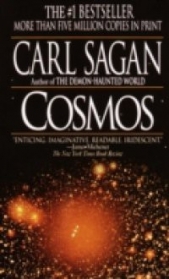Образ человека будущего, Том 7 (СИ)

Образ человека будущего, Том 7 (СИ) читать книгу онлайн
На основе предшествующих трех монографий Международное философско-космологическое общество начало выпуск научного журнала Future Human Image, в котором представлены современные мировые исследования образа человека будущего. Журнал охватывает области нейронаук, педагогики, философии образования и психологии. В данном выпуске представлены работы специалистов из США, России, Украины, Бразилии, Южной Африки, Испании, Казахстана. Журнал публикует исследования на русском, английском и украинском языках
Внимание! Книга может содержать контент только для совершеннолетних. Для несовершеннолетних чтение данного контента СТРОГО ЗАПРЕЩЕНО! Если в книге присутствует наличие пропаганды ЛГБТ и другого, запрещенного контента - просьба написать на почту [email protected] для удаления материала
Beregova, Galina. Philosophy of Education: Pragmatism-Instrumentalism Concept of Forming the Future Human in Higher Education. In Future Human Image, 3 (6). Kyiv: ISPC,
2016: 31-45.
Choices, Values, and Frames. Edited by Daniel Kahneman and Amos Tversky. New York: Cambridge University Press, 2000.
Danylova, Tetiana. The Theory of Civilizations Through the Lens of Contemporary Humanities.
In Anthropological Measurements of Philosophical Research. 9, 2016: 55-62.
Fedorova, Lidiia. Model of Social-Pedagogical Understanding Work with Tutelary Family in Secondary School. In Humanitarian Visnyk, Volume 65, 2016. Zaporizhzhya: ZNU,
2016: 212-220.
Frey, Bruno S. Economics As a Science of Human Behaviour. Towards a New Social Science Paradigm. Springer Netherlands, 1992.
Gomilko, Olga, Denys Svyrydenko, and Sergii Terepyshchyi Hybridity in the Higher Education of Ukraine: Global Logic or Local Idiosyncrasy? In Philosophy and Cosmology, Volume 17, 2016. Kyiv: ISPC, 2016: 12-25.
118 Future Human Image. Volume 7, 2017
Homo Economicus as the Basis of "Asgardia" Nation State in Space: Perspective of Educational Technologies by Roman Oleksenko and Lidiia Fedorova
Ingram, John Kells. A History of Political Economy. 1888. http://oll.libertyfund.org/titles/ ingram-a-history-of-political-economy
Jaeger, Werner.Paideia: The Ideals of Greek Culture: Volume I: Archaic Greece: The Mind of Athens. Basil Blackwell, Oxford, 1946.
Khmil, Volodymyr, and Tetiana Khmil. Anthropological Aspect of the Nature of the State. In
Anthropological Measurements of Philosophical Research. ╧7, 2015: 7-15. Krichevsky, Sergey. Evolution of Technologies, "Green" Development and Grounds of the
General Theory of Technologies. In Philosophy and Cosmology, Volume 14, 2015: 120-
139.
Krichevsky, Sergey. New Model of Evolution of Technologies and Prospects of Research with Using Big Data. In Philosophy and Cosmology, Volume 17, 2016: 118-135.
Krichevsky, Sergey. A Management Concept of the Technosphere"s Evolution. In Philosophy and Cosmology, Volume 18, 2017: 153-164.
Mill, John Stuart. On the definition of political economy and on the method of philosophical investigation in that science. London and Westminster Review (October). Reprinted as Essay V in Essays on some unsettled questions in political economy (1844). In Collected Works of John Stuart Mill. Edited by J.M. Robson. Toronto: University of Toronto Press:
309-339.
Oleksenko, Roman. The Philosophy of Market Relations. Its Formation and Development in Ukraine in the Age of Globalization and the Information Revolution. Kyiv: Znanie Ukraine, 2013.
Oleksenko, Roman. Economic Education and Upbringing as a Means of World View
Foundations of the Modern Enterprise. In Vysha Osvita Ukraine. 4, 2013a: 79-85.
Plato. Collected Works in Four Volumes. Moscow: Mysl", 1994.
Rodriguez-Sickert, Carlos. Homo Economicus. In Handbook of Economics & Ethics. Edited by Jan Peil and Irene Van Staveren. Edward Elgar Publishing, 2009.
Scientists Plan to Create "Asgardia" Nation State in Space. 13 October 2016. http://www.bbc. com/news/world-europe-37650274
Stroebe, Wolfgang, and Bruno S. Frey. In Defense of Economic Man: Towards an Integration of Economics and Psychology. In Schweizerische Zeitschrift für Volkswirtschaft und Statistik, 1980, Bd.116, S.119-148.
Svyrydenko, Denys. Mobility Turn in Contemporary Society as an Educational Challenge. In Future Human Image, Volume 3(6), 2016. Kyiv: ISPC, 2016: 102−108.
Thaler, Richard. From Homo Economicus to Homo Sapiens. In Journal of Economic Perspectives. Volume 14 (1), 2000:133-41.
Ursul, Arkady, Tatiana Ursul and Mideg Dugarova. New Goals of Sustainable Future. In
Philosophy and Cosmology, Volume 18, 2017: 37-50.
Vitol, Eduard. The Future of the Earth"s Evolution is Known (Philosophizing beyond Reality). In Philosophy and Cosmology, Volume 13, 2014: 202-209.
Voronkova, Valentina. The Formation of the Concept of Noosphere Development of Modern Society in the Conditions of Information Society. In Philosophy and Cosmology, Volume 16, 2016: 179-189.
Weise, Peter. Homo economicus und homo sociologicus: Die Schreckensmänner der Socialwissenschaften. In Zeitschrift für Sociologie. April 1989, Jg.18, H.2, S.148-161.
Future Human Image. Volume 7, 2017 119
The Ideal Image of a Man: the Main Characteristics
and Ways of Achieving
Galyna P. Shevchenko - Doctor of Pedagogical Sciences, Professor
Volodymyr Dahl East Ukrainian National University
(Severodonets-Kyiv, Ukraine)
E-mail: [email protected]
Key aspects of the problem concerning culture and arts implementation in the context of an ideal personality creation are described in the article. The focus is on the crucial necessity to overcome the upbringing crisis in modern society. It has emphasized that lack of culture and arts development, which appears to be fundamental for creation of human excellence, could lead to a great failure in the context of cultivating a true human. The views of the world-known educators as well as national ones are represent-ed in the articles. The importance of upbringing, culture and arts is underlined. It has been identified that improvement, purification, culturalization and enlightenment of "human material" should be carried out through the mentioned above approaches. It gives a person an opportunity to glitter by the brilliancy of the unique individual talent, which everyone gets from the Almighty. The model of a cultural personality is described in the article as well. It is underlined that following the moral rules of the Universe will allow people to achieve a higher level of spirituality and morality, to improve their interaction culture between individuals, nations and countries. Also, it will give people an opportunity to get excellence. Usage of the counterfactuality as a term for marking the modality to some event becomes a new trend in social sciences.
Key Words: ideal image, culture, arts, personality, creation of an ideal personality, man of culture, perfect image























